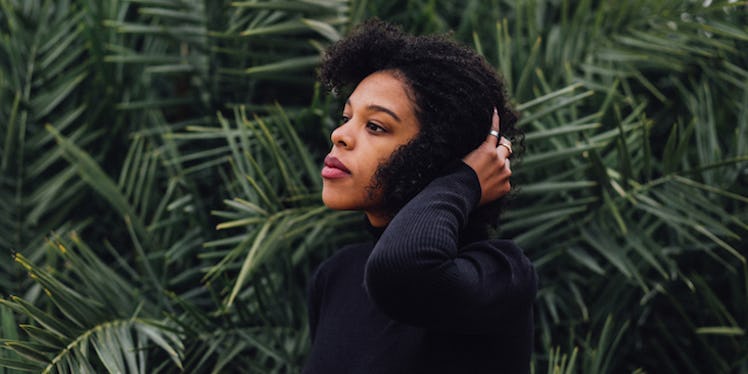
Is It Bad If Your Period Comes Early? Here's What You Need To Know About Your Flow
When it comes to getting your period, there's nothing more frustrating than inconsistency. Hell, the inconsistency of anything is irritating, but when talking about your monthly flow, the last thing you want it to be is a surprise. Still, when your period comes early, you've got to be prepared to handle it and know what your body is trying to tell you.
First, for clarity, an early period is not the spotting that you may get before your period officially starts. An early period really refers to when you start bleeding again just days after your last period ended, or you start bleeding in the two weeks or so before you'd expect the next period to start.
Overall, it's important to know that your menstrual cycle is very fragile. Any slight change in your hormones can disrupt your flow, so the situation needs to be handled very delicately and with the utmost care.
A woman's period can be very sensitive to environmental factors, stress, diet, travel, and hormonal changes.
"If a woman gets her period earlier than expected once or twice per year, it is not very significant,” Dr. Majid Fateh, M.D., of the New York Fertility Institute, tells Elite Daily. However, he also warns that “if menstrual cycles become irregular, either periods occurring earlier or later, it will affect fertility because ovulation changes.”
Dr. Jaime Knopman, fertility specialist at CCRM New York, co-founder of Truly MD, also spoke with Elite Daily to illustrate, in detail, what this actually means.
She explains,
When your cycles start to get closer and closer together (example: 23 days apart versus 28 days), it can be a sign of decreasing egg quality and quantity. The first half of your cycle (the follicular phase) is getting shorter and shorter, and therefore the overall length of the cycle is shorter. As you age, your body starts to develop the egg it will release next month in the second half of the cycle before (simply stated, it lets the 'horse' out of the gate early). Premature follicular development (aka growing the egg early) can be a sign of decreasing egg quality.
So, too many early periods throughout your life could potentially be a sign of decreased fertility.
Dr. Fateh specifically warns that fibroid, inflammation, and ovarian factors should be considered here, because these are the very circumstances that can negatively affect fertility in the long run.
He explains,
Fibroids may cause irregular periods, especially if they are located with in the uterine cavity. These types of fibroids bleed from their surfaces within the uterine cavity. Also, inflammation within the uterine lining -- which is called endometritis -- may cause irregular bleeding. Also, it prevents implantation of embryos (because the uterine lining is inflamed). [As for ovarian factors], some ovarian cysts produce hormones that affects the menstrual cycle.
I know that all sounds scary, but don't let it freak you out so quickly. Dr. Knopman reassures us that early menstrual cycles aren't always related to fertility issues. They could also be a sign of a hormonal issue, in which case, it's best to see your OBGYN for prescribed medication and further guidance.
Generally speaking, it's always in your best interest to speak with your own doctor when health issues arise. No two bodies are exactly the same, and you deserve the best treatment possible.
In the meantime, to stay on top of your menstrual cycle, Dr. Knopman suggests something as simple as keeping a journal to help you keep track of time each month.
She tells Elite Daily,
Map it, track it, write it down! It can be hard to remember when you start bleeding month after month.
Above all, please remember that regular check-ups are crucial for you to have a full understanding of how your body functions. Have your OBGYN on speed dial, and handle yourself with the care and consideration your body deserves.